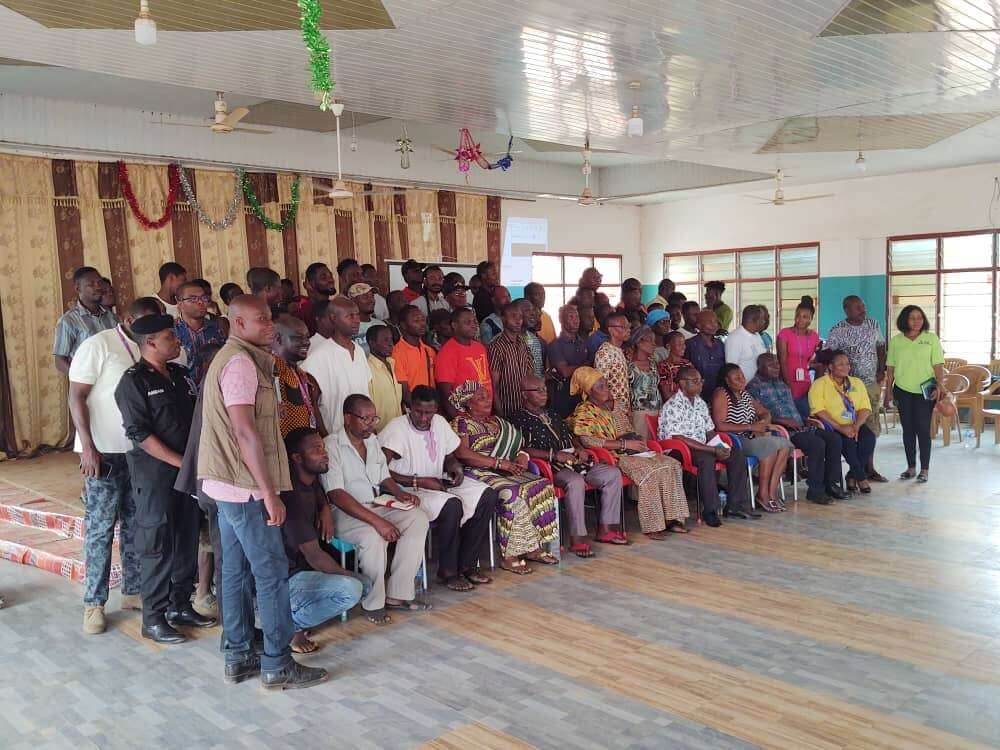The Volta River Authority (VRA) has held series of community engagements with residents and stakeholders living along the banks of the lower Volta River, ahead of plans to begin dredging operations in the river.
The affected communities are from the South, Central and North Tongu Districts all in the Volta region and the Ada East District of the Greater Accra region.
The community engagements were to sensitize and educate the residents on the urgent need to dredge the Volta river and to harvest the aquatic weeds to allow for the rapid and easy flow of the river into the sea and vice versa.
This phenomenon was currently being hampered due to the large amounts of sand that has silted on the river bed, the blocking of the estuary by sandbars and the proliferation of aquatic weeds that have taken over the entire stretch of the river.
In separate presentations at Tefle, Mepe and Ada-Foh, Community Relations Manager of the VRA, Samuel Fletcher, outlined some benefits of dredging the river which he said far outweighed the disadvantages.
He named the benefits to include increase in livelihood activities such as fishing and trading especially for women and the availability of clean drinking water for the communities all year round.
He said, the dredging would also improve the quality of the water, decrease the potential for siltation and flooding which can impede communal life.
Fletcher said the dredging and the removal of the aquatic weeds would further improve the stability of biodiversity and aquatic life in the river, restore the value of the river’s ecosystem, decrease/eliminate disease outbreaks such as cholera, malaria, and bilharzia which were prevalent among residents living in communities along the river, among other socio-economic benefits.
He said the project which is a Public Private Partnership (PPP) was in two phases.
The first phase being the dredging of the sand deposits from the river to deepen the original river channel, enrich the river banks and to supply the sand to the communities or for estate development.
The phase two, he said, would see the harvesting of the aquatic weeds and converting same into commercially useable forms such as organic fertilizer, animal feed, gas for domestic use or for power generation.
Mr Fletcher said the project had been awarded to private contractors and would be closely monitored and supervised by the VRA to ensure that the contractors adhered to the terms and conditions of the contract.
The project, he said, would last for a period of ten years and assured that the majority of the workforce would be employed from the local communities along the river to help reduce the high unemployment rates.
He further assured that measures would be put in place to ensure that residents whose livelihoods would be affected or destroyed by the dredging operations were properly compensated.
Madam Sarah Dugbakie-Pobee, District Chief Executive for Ada East, who sat through the Ada engagement called on the residents to support the project as it geared towards their own well-being.
She also observed that the benefits of the dredging were far more than the disadvantages.
Madam Pobee assured of her personal commitment to ensure that all the grievances of the people were addressed in order for the project which was long overdue to take off for the common good of all.
Some Chiefs and Opinion leaders especially the Paramount Chief of Tefle Traditional Area, Torgbiga Nakakpo Dugbazah VIII, who took part in the sensitization meeting, lauded the initiative and expressed hope that it would yeild the intended purpose.
By Leo Nelson || Ghananewsonline.com.gh

